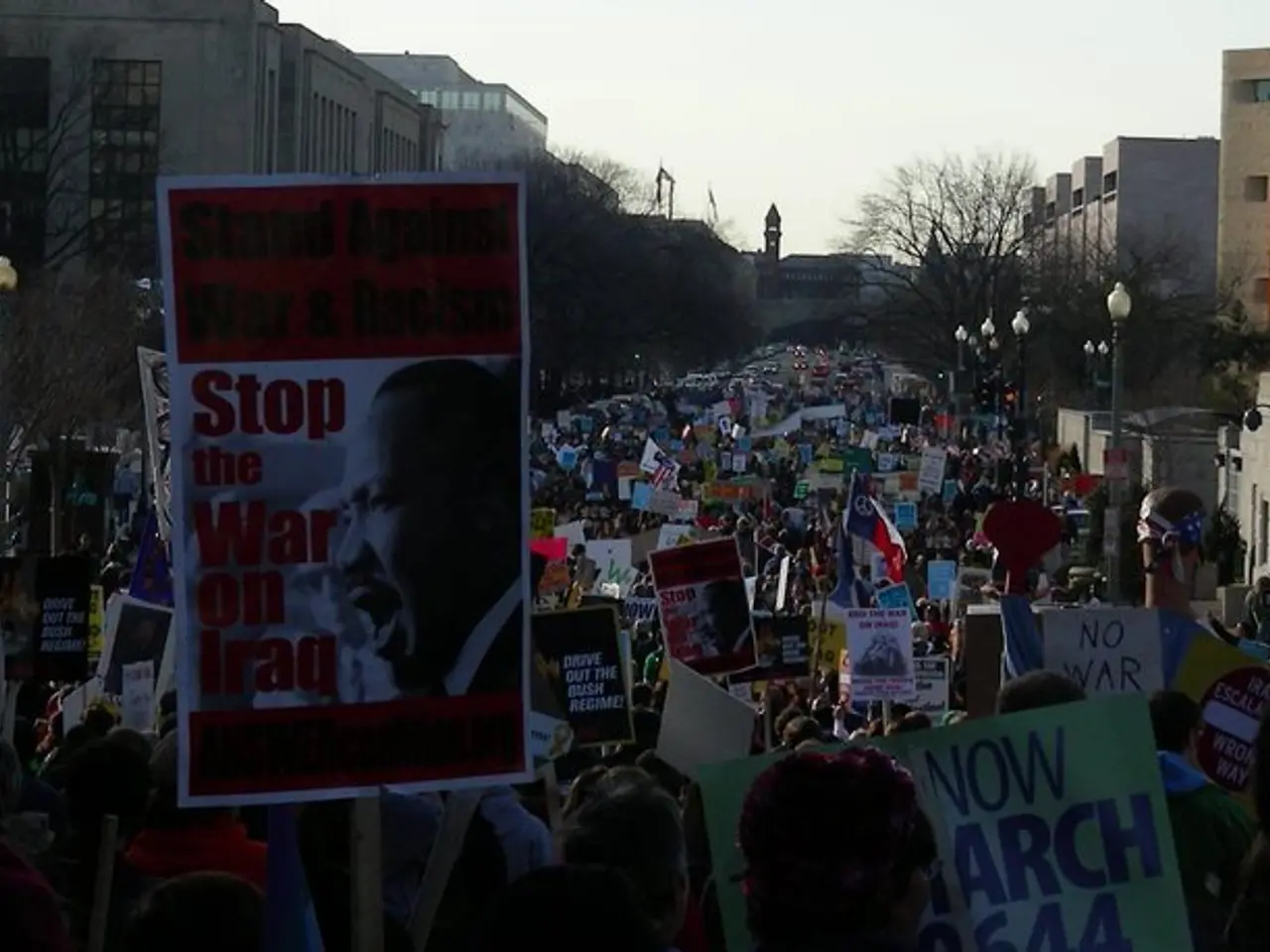International Body Criticizes Settler Harassment in West Bank: "Repression Reaches Intense Levels Unseen in Decades"
In a damning statement, the United Nations blasts the alarming decline in Palestinians' quality of life and safety following the Hamas attacks on Israel in October last year. The report reveals a worrying increase in Israeli military actions and settler violence against Palestinians in the West Bank and East Jerusalem between October 7 and November 20.
The brutal reality is staggering. At least 300 civilians, including 79 minors, lost their lives during this period. Among the deaths, the Israeli army is held responsible for 291 Palestinians while the rest were caused by Israeli settlers. "The employment of excessive force, unnecessary restrictions, and discriminatory measures against Palestinians is deeply concerning," remarks UN High Commissioner for Human Rights, Volker Türk. He adds that the violence and repression encountered in recent years haven't been seen to such an extent for quite some time[1].
A particularly brutal episode unfolded on October 19 and 20 in the Nur Shams refugee camp in Tulkarem, northern occupied West Bank. Israeli soldiers and settlers, using assault forces, resulted in the death of 14 Palestinians, six of them children, as well as several injuries and detentions.
The report also highlights the surge in violent actions by Israeli settlers living in the occupied West Bank against Palestinians. In 2023, more than 1,200 attacks on Palestinian properties were documented, a 45% increase from 2022, leading to 17 civilian deaths. With around 465,000 illegal Israeli settlements in the West Bank and another 230,000 in East Jerusalem, this atmosphere of impunity dramatically accelerates the displacement of Palestinians from their homes. During October 7 to November 20, 143 households, including 388 children, were forced to leave their homes in the southern Hebron hills, Jordan Valley, and East Ramallah due to settler violence and restrictions on access to farming and grazing areas[1].
The West Bank and East Jerusalem have been often referred to as an open-air Palestinian prison. The UN notes that checkpoints remain closed, and when they do open, extensive searches are imposed, delaying movement and exposing Palestinians to arrest and mistreatment by Israeli security forces[1]. The substantial presence of settlers and Israeli soldiers on the roads renders it impossible to access essential services, such as ambulances or product delivery to stores[1].
The High Commissioner calls on Israel to immediately end settler violence against the Palestinian population and investigate incidents involving settlers and Israeli security forces. Israel has disputed these allegations, dismissing the report as "quite ridiculous"[1]. Israeli presidential spokesman Heinrich maintains that settler attacks are a negligible phenomenon and that the Israeli government will continue to arrest suspected terrorists in the area[1].
Yet, the UN's concern extends beyond Israel's response. The dehumanization of Palestinians and the lack of accountability for violations are issues that need immediate attention[1]. The situation demands openness to international investigations and swift action to enforce human rights.
In the meantime, the violent cycle of retaliation continues, with tens of thousands of Palestinians, including 40 journalists, facing detention by Israel since the military incursion into Gaza[1]. It is essential for both sides to cease these tragic and tiresome hostilities.
[1] https://www.reuters.com/world/middle-east/un-intervenes-israel-palestinian-violence-demands-immediate-ending-settler-2023-11-15/
The UN High Commissioner for Human Rights, Volker Türk, notes a concerning increase in the employment of excessive force, unnecessary restrictions, and discriminatory measures against Palestinians, labeling the current situation as reminiscent of past years' violence and repression with regard to general-news topics and politics. This alarming scenario results in an average of 14 Palestinian households being displaced every day, leading to a total of 143 households, including 388 children, being forced to leave their homes in the West Bank and East Jerusalem, as reported in the UN's analysis of crime-and-justice incidents.







